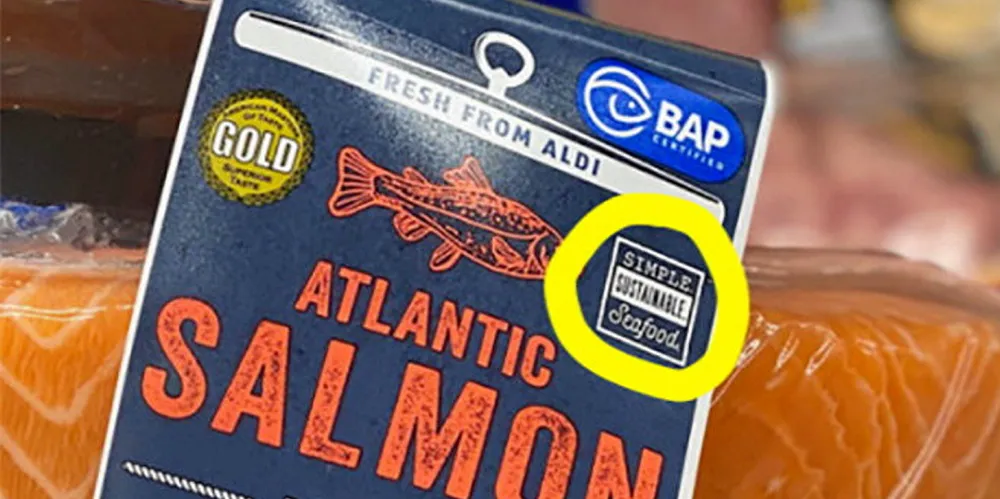Best Aquaculture Practices eco-label fails to protect Aldi against deceptive farmed salmon allegations
Court rejects retailer's attempt to dismiss deceptive marketing claims.

A US District Court for the Northern District of Illinois this week rejected a motion from retailer Aldi to dismiss a class action lawsuit against the supermarket chain for alleged deceptive marketing claims related to the Atlantic salmon it sells.
The case demonstrates the limited power of eco-labels to protect companies against deceptive marketing claims based on how they raise and market seafood.
The Germany-based discount retailer was hoping its use of the Global Seafood Alliance's (GSA) Best Aquaculture Practices (BAP) sustainability label would help shield it against the deceptive marketing allegations.
The court ruled plaintiff Jessica Rawson’s claim that Aldi's salmon is being deceptively marketed as sustainable to be at least "plausible."
"The court finds that Rawson’s claim is at least plausible, the “BAP certified” designation notwithstanding," the judge ruled, adding that "a reasonable consumer might not know what the BAP label means, much less know how it relates to ALDI’s claim of sustainability."
In addition to the BAP label, the retailer's salmon pack also displays the wording "Simple. Sustainable. Seafood."
GSA's request to file an amicus brief in the case supporting Aldi's request for dismissal of the suit was denied by the court. The group also filed for permission to submit a similar brief in the GMO Free USA case, but the judge has yet to rule on that request.
"GSA’s position that its BAP standards equate to industry leading standards for aquaculture, and therefore do not make ALDI’s 'sustainable' label misleading, are matters to be explored during discovery," the court said.
The court did say that GSA's brief would possibly be more useful if this case were at the summary judgment stage.
This week's decision follows a similar ruling in February in the District of Columbia Superior Court brought by the group GMO Free USA, which also goes by the name Toxin Free USA.
Both cases center on claims that the salmon sold is raised in Chile in "industrial" fish farms that harm the surrounding environment and health of the fish.
Plaintiffs in both cases are being represented by attorneys with Richman Law & Policy firm, which is no stranger to lawsuits involving seafood companies.
Only the latest target
The firm in 2020 filed a similar lawsuit against Mowi-owned Ducktrap of Maine, alleging the company sources its salmon from farms that use unsustainable and destructive farming techniques.
A status hearing in the case is scheduled for June.
(Copyright)